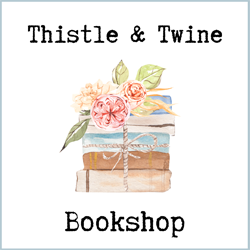
Beauty and the Beast
written by Jeanne-Marie Leprince de Beaumont
34 pages // published in 1756 // children's fairy tale
BOOK DESCRIPTION
Beauty and the Beast is a traditional fairy tale. Its first published version was written by the French author Gabrielle-Suzanne Barbot de Villeneuve in the mid-18th century. It was a novel-length story intended for adult readers and addressed the issues of the marriage system of the day in which women had no right to choose their husband or to refuse to marry.
The best-known version of the tale appeared sixteen years later. Jeanne-Marie Le Prince de Beaumont simplified and shortened de Villeneuve’s work and published it in a magazine for young ladies. The new abridged version became more successful, and Madame de Beaumont is now regarded as the author of the classic story.
Beauty and the Beast is a traditional fairy tale. Its first published version was written by the French author Gabrielle-Suzanne Barbot de Villeneuve in the mid-18th century. It was a novel-length story intended for adult readers and addressed the issues of the marriage system of the day in which women had no right to choose their husband or to refuse to marry.
The best-known version of the tale appeared sixteen years later. Jeanne-Marie Le Prince de Beaumont simplified and shortened de Villeneuve’s work and published it in a magazine for young ladies. The new abridged version became more successful, and Madame de Beaumont is now regarded as the author of the classic story.


Interested in reading the original 'Beauty and the Beast' fairy tale? I love classic literature, and it seemed to me like just the perfect time to read 'Beauty and the Beast'. Of course, there's many adaptations of this story out there, but for me, I wanted to get as close to the original source as possible -- and I recommend doing it too!
It's a short read. But an impacting one. I think there is not just one moral lesson to be found within its pages, but actually many.
Beauty has been (to some degree) imprisoned -- by a strange beast. Surprisingly he takes care of her every need or whim and is attentive to any detail. For three months the Beast asks Beauty to marry him -- every single night. And every night he receives a negative answer. Doesn't this just sound senseless for the Beast to continue? But he knows in his heart he's found the right girl. The Beast loves her, and professes he would now die without her.
Beauty is truly wise for her age and notices his many kindnesses towards her. While staying in the Beast's castle, she is well-fed, well-clothed, and becomes more well-read. She senses that in fact this Beast, though frightful in his form, actually has one of the most compassionate and considerate hearts -- more so than many of the people she knew. In her own words she thinks: "'tis a thousand pities any thing so good-natured should be so ugly." And how true, Beauty, how true.
Now, Beauty has some rather nasty sisters, who actually "rubbed their eyes with an onion, to force some tears when they parted with their sister". These sisters play a big part in the moral of the story. They hate her, but I think the real element we should be examining is why -- Beauty herself is an honest, innocent and hard-working girl. She strives to do good and find good in all situations, and this completely rubs her sisters the wrong way. At a particularly wicked moment close to the end, these sisters even come up with a plan that would potentially end in Beauty's death. Of course, I dislike the characters of Beauty's sisters, but we do need them in the story for the morals to shine brightly.
What I like (at least about this particular version) is that Beauty is portrayed as a merchant's daughter. A commoner. She's not a princess at all, not even one in disguise. You don't have to be born as a princess to have a fairy tale life.
And so, when the fairy tale is ended, what are we left with?
Compassion. Kindness. Consideration for others.
Virtue ranks higher than wealth or handsomeness.
Love sees past the ugly. Love sees the most beautiful parts.


This is book #2 for me in the Back to the Classics 2017 challenge.
[CATEGORY: Classic Published Before 1800]

P.S. Like and vote for this review on Goodreads and Amazon.













I like what you said here:
ReplyDeleteYou don't have to be born as a princess to have a fairy tale life.
That's one of the things I like best about both "Beauty and the Beast" and "Cinderella," that it's what a person does, how they live out the things they believe, that matters, not who their parents were or what station they were born to.
@Hamlette,
ReplyDeleteIsn't that the truth!?
Nice!!! I love the original fairytale story! I think that the fairytale stands out from a lot of others because it's about a merchant's daughter, not a princess, and they fall in love slowly, not instantaneously like 90% of fairytales. :D
ReplyDeleteWow, I'll have to read this now!
ReplyDelete